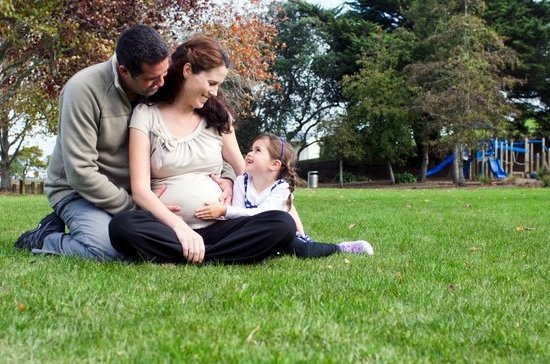Introduction
Pregnancy can be a time of excitement and nervousness for expecting mothers. Many women experience a variety of symptoms during their pregnancies that can offer some assurance that all is going well. This can make determining whether those symptoms are good signs a key question for pregnant women. Therefore, it’s important for expecting mothers to understand the signs and symptoms of pregnancy that indicate positive progress in their gestations. In this article, we’ll explore what pregnancy symptoms could mean as good signs of a healthy pregnancy and how they might differ from indications that something is wrong.
Different Types of Symptoms
Pregnancy symptoms usually start during the first trimester (weeks 1-12). These may include morning sickness, fatigue, breast tenderness, intense food cravings or aversions, and frequent urination. Many of these are common throughout pregnancy and can be signs of an otherwise healthy pregnancy.
As the pregnancy progresses into the second trimester (weeks 13-28), hormonal changes cause further physical effects such as increased abdominal size, tightness in the abdomen due to expanding uterine muscles, and darkening of the Areola. Other symptoms may include stronger fetal movements and decreased morning sickness.
In the final trimester (weeks 29-40), additional symptoms may appear as your body prepares for childbirth. Swelling of hands and feet is normal as well as abdominal pains or cramps as you get closer to delivery day. Further darkening of your areolas may occur along with increased vaginal discharge. Braxton Hicks contractions in the late stages of pregnancy can give some painless yet uncomfortable sensation – these false contractions indicate that your body is preparing for birth.
Ultimately all these physical changes are good signs as they are indications that your body is working normally.Though pregnancy symptoms vary from woman to woman and each experience may be slightly different than others people have had, they all ultimately lead to one thing: becoming a new mother!
How to Know If Your Symptoms are a Good Sign
Changes in Your Breasts: As your body readies itself for a baby, you may experience changes in your breasts. Your nipples may become darker and more protruded, and your breasts will likely become increasingly tender and swollen.
Emotional Changes: Many pregnant women report emotional or mental changes as early signs of pregnancy. You may feel increasingly emotional during certain times of day, or suddenly experience unexplained tears or joy. You might also find yourself saying yes to offers you would have normally declined in the past.
Increased Body Temperature: During pregnancy, your body temperature will often increase which can be an early sign of pregnancy. Take note of any increases that occur before your period is due to determine if they are connected to a potential pregnancy.
Disadvantages of Self-Diagnosis
When it comes to a potential pregnancy, self-diagnosis can be dangerous. Pregnancy tests and online resources can provide quick access to information, but they may not be 100% accurate. It is extremely important for anyone who suspects that they may be pregnant to contact their doctor or healthcare professional as soon as possible for a confirmatory test and also to discuss any concerns.
Self-diagnosis can also lead to false hope or disappointment by relying on unreliable results from an at home pregnancy test or an online symptom checker. While these tools may help an individual find the answers they are looking for, there is always a risk of inaccurate results or misinterpretation of the data. Additionally, online content often fails to consider medical history, family history and other important pieces of information which could affect the outcome of the results.
Ultimately, speaking with your doctor will yield more reliable advice that takes into account your individual situation rather than relying on general guidance found online.
Seeking Professional Advice
Pregnancy tests are an important way for a doctor to confirm whether or not someone is pregnant. One type of test used is a blood test, which measures the amount of human chorionic gonadotropin (HCG) in the womb. The HCG hormone is released by the cells that form the placenta during pregnancy and it can be detected in a woman’s bloodstream around six days after conception. Another type of test used to confirm pregnancy is an ultrasound. An ultrasound provides images of the growing child and can usually detect a heartbeat after eight weeks of gestation. Additionally, pelvic exams may also be performed to observe physical changes associated with pregnancy, such as increased size and softening of the uterus caused by hormonal changes.
Common Questions about Pregnancy Symptoms
1. What pregnancy symptoms are to be expected?
2. Which symptoms might cause concern during pregnancy?
3. What should I do if I experience any signs of pregnancy that could be concerning?
4. When is it time to seek medical advice regarding pregnancy symptoms?
Conclusion
In conclusion, pregnancy symptoms such as fatigue, nausea, tender breasts, frequent urination, and food cravings can all be indicative of an impending pregnancy. While not always a reliable proving method for expecting mothers, these symptoms are usually a good indication that a woman may potentially be pregnant and should take the necessary steps to confirm their suspicions. Ultimately, the best way to know 100% if you’re pregnant is with a medical professional.

Welcome to my fertility blog. This is a space where I will be sharing my experiences as I navigate through the world of fertility treatments, as well as provide information and resources about fertility and pregnancy.





